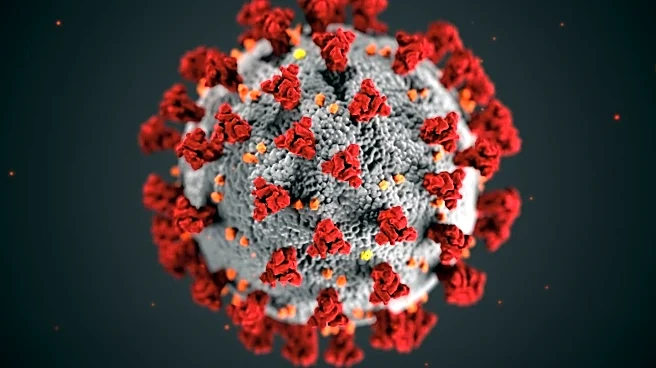What's Happening?
A recent study has highlighted the potential of nasal sprays in preventing respiratory viruses such as COVID-19 and the common cold. Conducted in Germany, the study involved 450 adults and found that those using azelastine, an antihistamine, were significantly less likely to contract these viral infections compared to those who took a placebo. Azelastine is marketed under brand names like Astepro and Astelin. The study suggests that nasal sprays could serve as a frontline defense by blocking viruses at their primary entry point, the nose. However, experts like Dr. William Schaffner from Vanderbilt University emphasize the need for larger studies to confirm these findings and determine effective dosages and usage frequencies.
Why It's Important?
The findings could have significant implications for public health, particularly in high-risk settings such as large gatherings or travel. If nasal sprays prove effective in larger studies, they could offer a convenient and non-invasive method to reduce the spread of respiratory viruses. This could be especially beneficial in complementing existing COVID-19 vaccines, which are effective in preventing severe disease but less so in stopping transmission. The development of nasal sprays could also lead to more effective vaccines that prevent initial infections, potentially reducing the overall burden of respiratory illnesses.
What's Next?
Further research is needed to validate the effectiveness of nasal sprays in larger populations and to establish guidelines for their use. This includes determining the optimal frequency and duration of use to ensure protection. Additionally, funding and support for nasal spray initiatives may be impacted by shifts in government priorities, which could delay the development of these potential preventive measures. Researchers are also exploring other nasal spray formulations, such as those involving gels, which may offer extended protection but require frequent application.
Beyond the Headlines
The exploration of nasal sprays as a preventive measure against respiratory viruses highlights a shift towards more localized and targeted approaches in vaccine development. This could lead to a broader acceptance and use of nasal vaccines, which have been underutilized despite their potential benefits. The research also underscores the importance of continued innovation in vaccine technology to address emerging health challenges.











